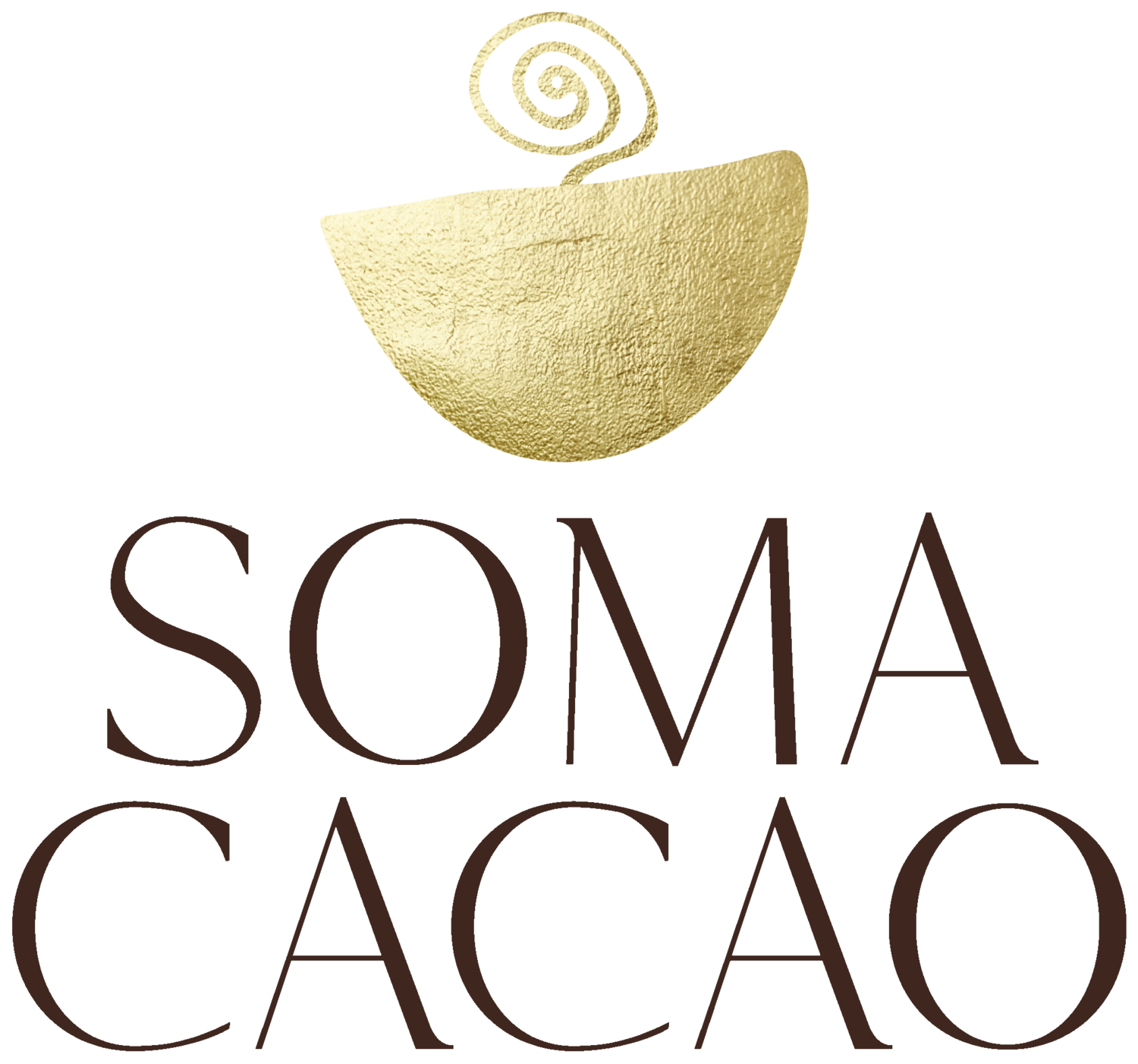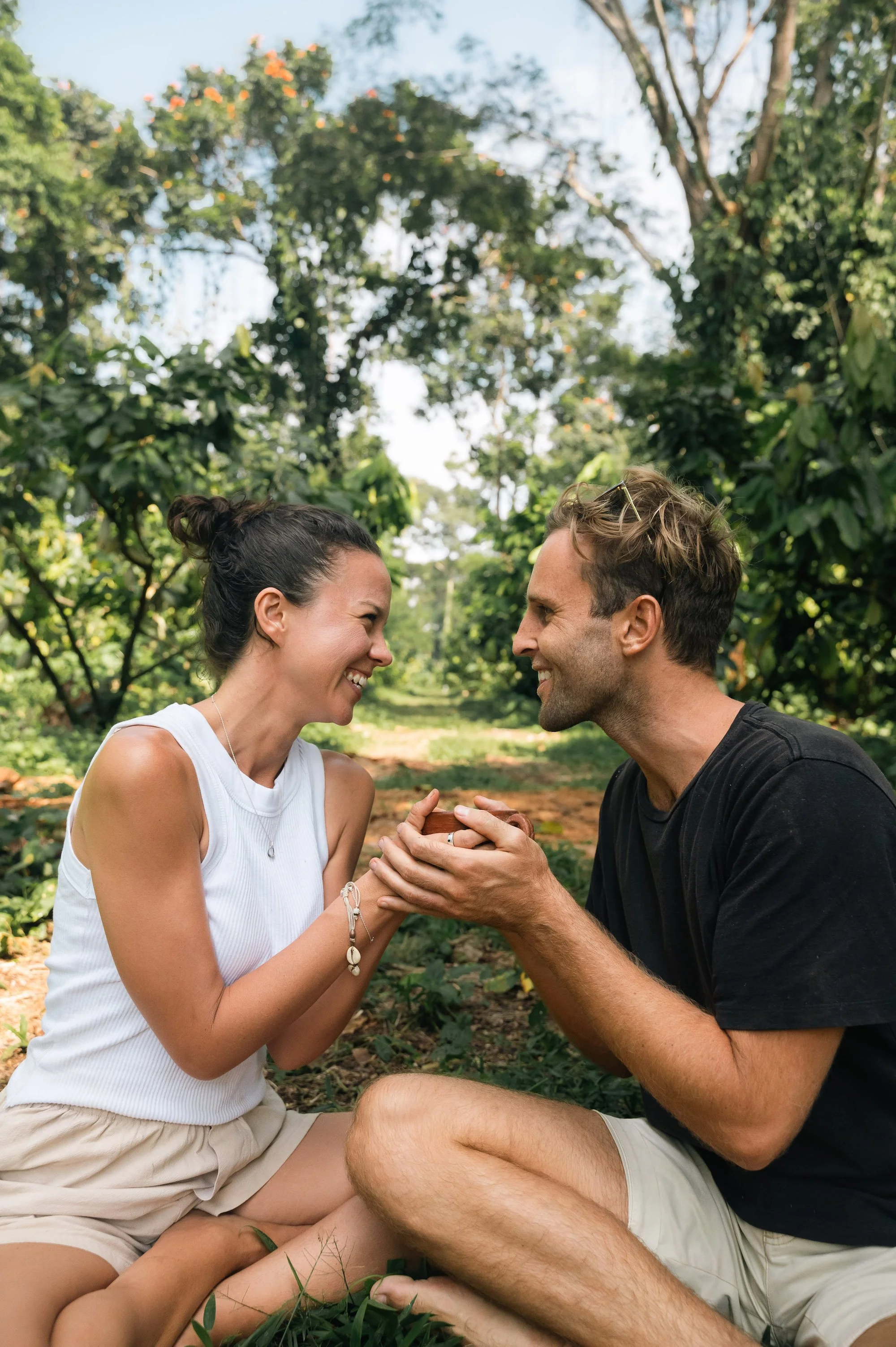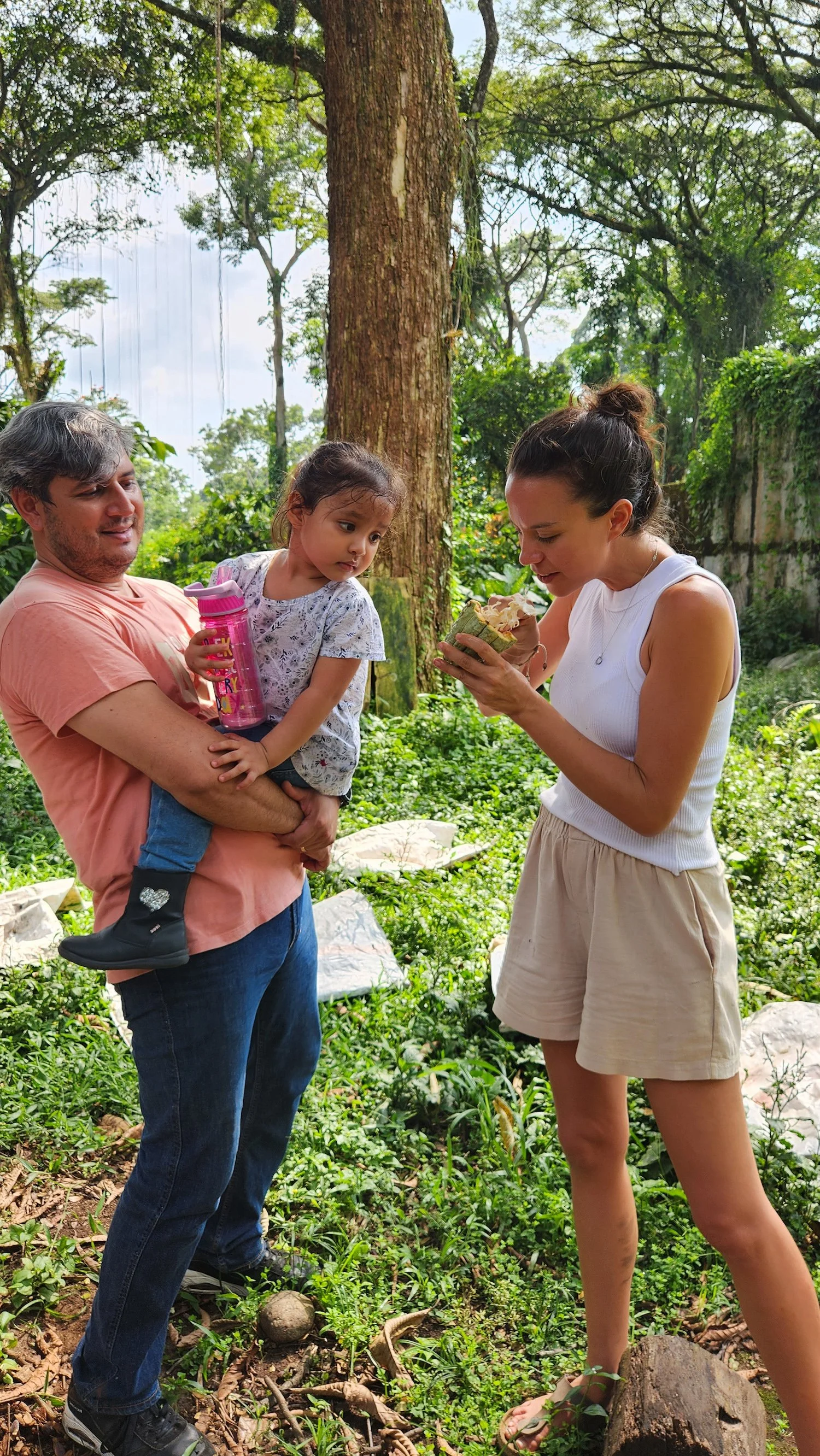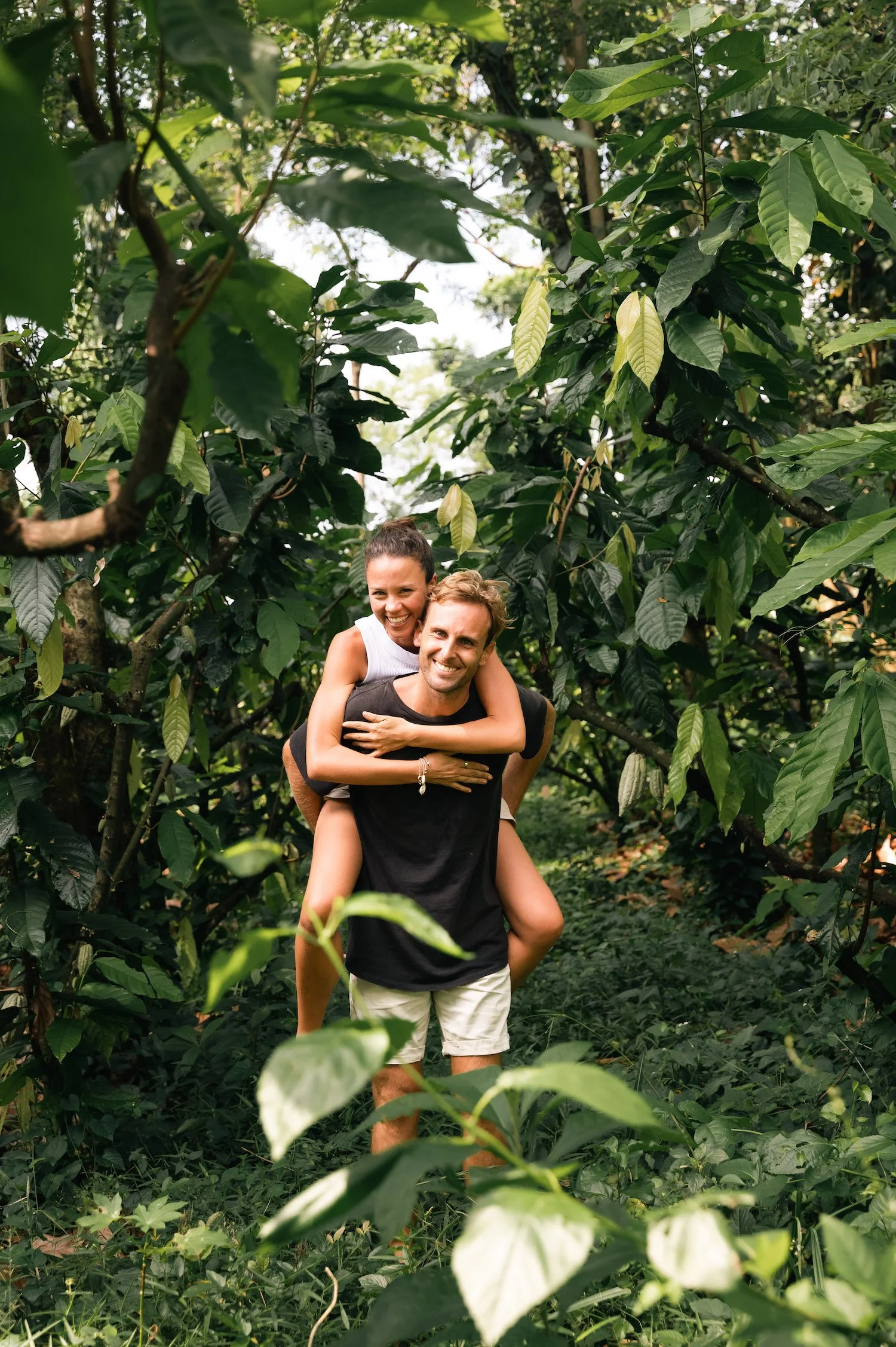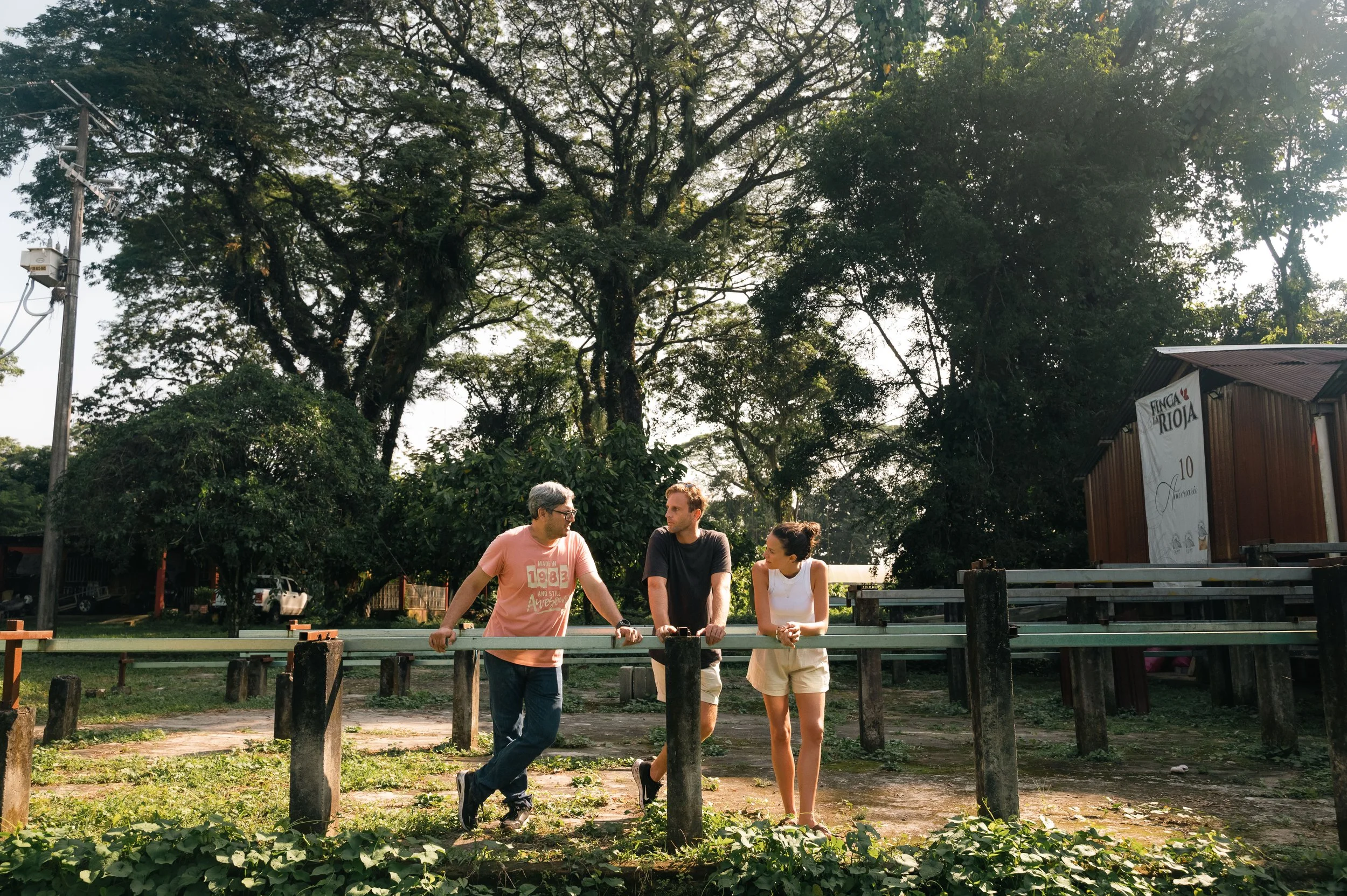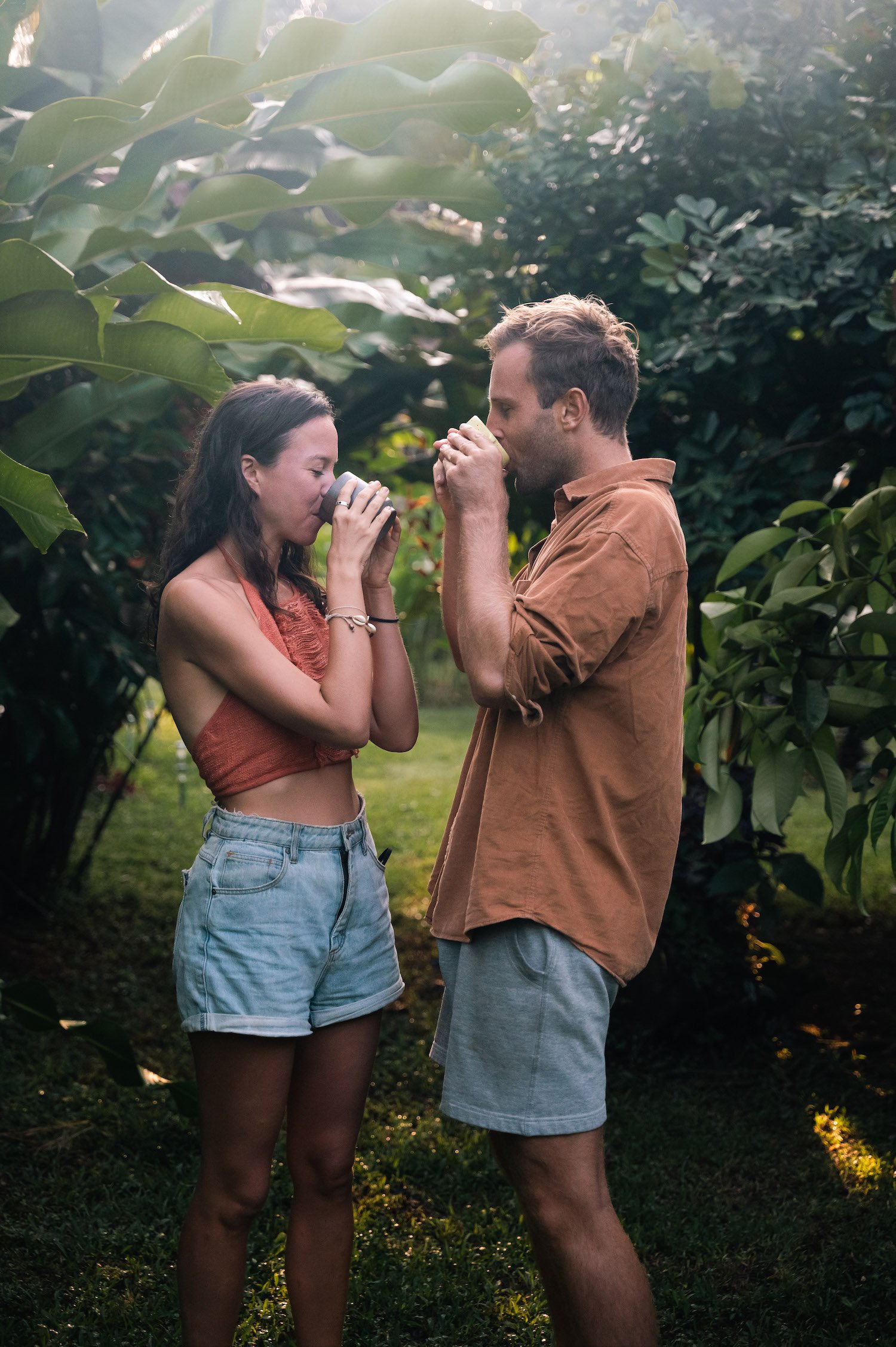
ABOUT US.
We are Rose and Alistair.
And we really, really love cacao.
We’ve directly sourced delicious, sustainable, award-winning varieties that are choc-full of benefits for our body, mind and soul.
We have two home-grown varieties: our Daintree Rainforest Cacao and the original and rarest of all: our multi award-winning Mission Beach cacao (only available for a limited time each month due to supply limitations).
We also offer Mexican ceremonial cacao - honouring the motherland of our beloved beverage. And we don’t just fair trade. We direct trade - so no middle-men, no supply chains. We have a personal relationship with our grower, Josue, whose family has harvested these criolla-bean cacao trees for generations, and whom we pay well above the fair trade rate. Like many businesses in Mexico, his has been hard-hit by COVID-19.
And finally, on a remote, tropical, volcanic island off the coast of Papua New Guinea grows some of the most highly prized cacao in the world - our best-selling Karkar Island ceremonial cacao.

WHAT WE CARE ABOUT.
We care about cacao, our values, and yours.
-
We ensure our growers use sustainable farming practices, and we do our best to use recyclable and/or biodegradable packaging. Our jars are Australian-made recycled PET and are fully reusable and recyclable. And we make sure our cacao gets to you in the most eco-friendly way possible. Our mailing bags are compostable and plant-based, we use bio-based sticky tape made from renewable materials that decompose with zero toxicity, and we protect our cacao using hex wrap: a fully compostable and recyclable alternative to bubble wrap.
Where possible, we source organic cacao, however organic certifications can be a tedious process, and the expense and effort is simply not worth it for some of our small farms. So far, our Balinese cacao and our Daintree Rainforest cacao have official organic certifications. We will keep you all updated though as this progresses with our other varieties.
-
We engage in direct trade. We have a personal relationship with the farmers and/or collectives who grow and harvest our cacao. We do not use a third party agent, a middle-man or supply chain - we’re directly supporting family-owned small-businesses both here, in Mexico, PNG, and in Bali, whose livelihood depends on cacao.
Our margins are tight because we pay stable, premium prices that are substantially higher than commodity market and Fair Trade prices, and are protected from market fluctuations. The volumes of bean produced by our smallholder farmers are very low, so generally single origin cacao is only suitable for small businesses like Soma Cacao.
Finally, by supporting ethical cacao producers, we are taking a stance against a corrupt commercial cocoa industry.
The direct trade ideology is more akin to a small business: there are far fewer complexities and potential problems in the supply chain. Direct trade allows for a stronger, more symbiotic relationship: both the farmer and buyer are dependent on each other’s ethics, quality, and success.
This philosophy leads to higher wages and often more sustainable, environmentally friendly farming practices. With direct trade, companies are closer to the source, and it often shows in the quality, care, and—yes, price—of their product. While this distinction is important, there’s currently no direct trade certification.
Most ceremonial cacao available in Australia is imported as a processed product from overseas manufacturers, who collect beans from a large number (tens of thousands!!) of cacao growers. It is then passed through a network of traders and importers until it arrives in Australia.
For us it is important to be able to trace our cacao all the way back to the farm.
-
With the rising global interest in cacao, a growing body of research has emerged, which helps us explain why we do what we do. We've carefully reviewed the science to ensure our claims and decisions are backed up by facts. Our benefits of cacao page breaks down the some of the science, complete with a reference list for your perusal. You may also be interested in our blog post that spills the beans on cacao vs coffee from a scientific perspective.
-
We select the highest quality cacao, according to our own taste testing and guided by the Cocoa of Excellence program. Every two years these prestigious awards rigorously select the 50 best cacao beans in the world, out of thousands of samples from all corners of the globe, according to quality, flavour and uniqueness. In in 2017 our Balinese Cacao and our Australian cacao made the list, and in 2019 both our Mexican and Australian cacao were acknowledged. The Mexican has recently been acknowledged on the 2021 Cocoa of Excellence top 50. Our Karkar Island cacao has not yet been entered into the Cocoa of Excellence Awards. However it has been recognised with awards both in Papua New Guinea and in Australia.
-
We let you choose the source of your Soma Cacao so you align with your own values, not just with ours. Care about supporting local Aussie farmers and limiting food miles? Go with Australian. Wish to stick to traditional ceremonial cacao, and support the survival of heirloom strains? Choose Mexican. Like the idea of supporting our islander neighbours who grow exceptional cacao and who are suffering at the hands of COVID-19? Choose Karkar Island or Bali. No preference? Try a sample pack. Let your taste buds or heart decide.
-
All our cacao has been hand-picked, naturally fermented, sun-dried, hand-peeled, stone-ground, roasted (except our Bali cacao, which is raw) and never tempered: the age-old methods of processing cacao. We only source pure, sustainably grown cacao paste, not powder. We add nothing, and we take nothing away.
In particular, our Mexican cacao is sourced from Chiapas, where the first ancient vessels containing traces of theobromine, cacao's unique srtimulant, were discovered. Mayans in Chiapas continue to prepare cacao drinks as offerings. For many people in the region growing cacao is an important family tradition and cultural practice. According to anthropologist Joel Palka, for Chiapans, cacao is "like coffee in the Arab world, or beer in northern and Eastern Europe, it's part of their identity".
OUR STORY.
Rose stumbled onto cacao while searching for herself in a spiritual community in Nicaragua in 2017. (Eat, Pray, Love, etc.).
The community gathered weekly for “cacao ceremonies”, and Rose, initially a total sceptic, was blown away by how they made her feel: full of delight, freedom, and a strangely deep sense of trust.
Rose then moved to Mexico, where she spent a few years immersed in meditation, yoga and cacao. Mexico was also where she met the other half of Soma Cacao: Alistair.
COVID-19 brought them back to Australia, where Rose struggled to find cacao that aligned with her values, which she could afford, and which hadn’t travelled ten thousand miles before she poured it into her cup.
After searching online and in health food stores for several months, she still had no answer. Then one day, as luck or fate or the gods of cacao would have it, she discovered a small farm growing award-winning cacao just fifteen minutes from her new home in Far North Queensland.
The seed was sown, and SOMA CACAO was born.

WHY ‘SOMA CACAO’?
The word soma in sanskrit means ‘food of the gods’. It can also refer to ‘divine elixir’, ‘pure delight’, or the ‘nectar’ secreted from the pineal gland during deep states of meditation, according to the yogic tradition.
Cacao’s technical name is theobroma cacao. Theobroma comes from the Greek words ‘theos’, meaning '“god”, and ‘broma’, meaning “food” therefore theobroma cacao also means the “food of the gods”.
A match made in heaven?

